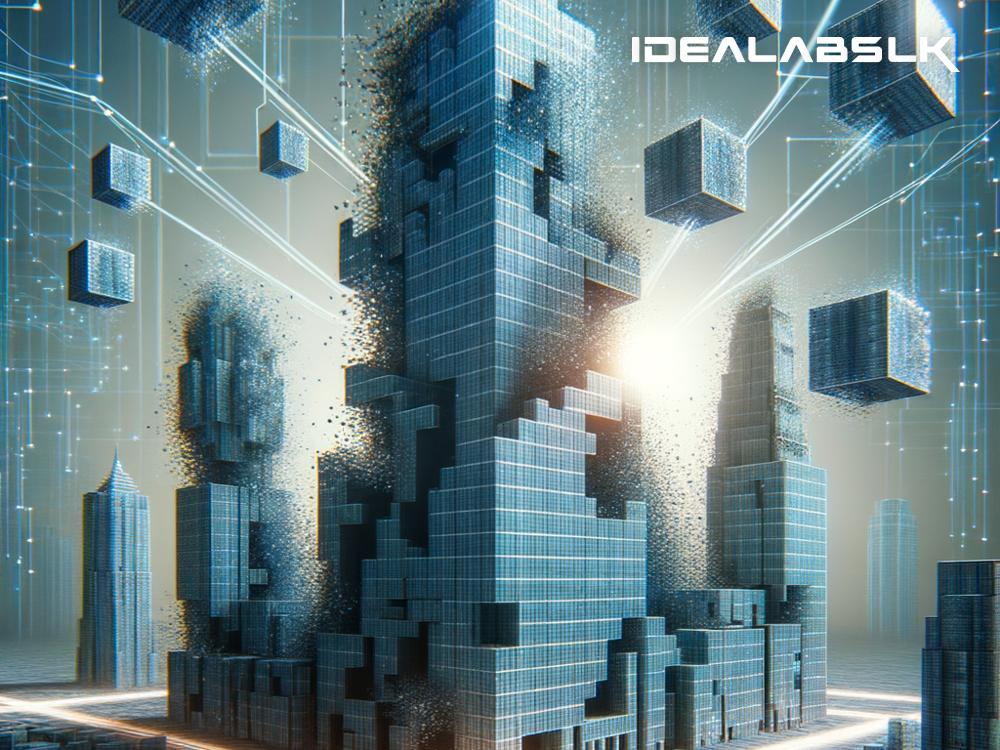Demystifying Blockchain in Real Estate: Unlocking the Power of Asset Tokenization and Fractionalization
In the ever-evolving realm of real estate, technology constantly brings about revolutionary changes. Among these innovations, blockchain technology stands out, particularly for its ability to redefine asset management and investment through tokenization and fractionalization. But what do these terms mean, and how do they benefit the average investor or property owner? Let's break it down into simpler terms.
Understanding Blockchain in a Nutshell
First off, blockchain is basically a secure, digital ledger that records transactions across several computers. This means that once information goes in, it cannot be altered or deleted, ensuring a high degree of security and transparency. Originally, blockchain served as the backbone for cryptocurrencies like Bitcoin, but its potential stretches far and wide, touching sectors like healthcare, entertainment, and, notably, real estate.
Unlocking Real Estate Potential: What is Tokenization?
Tokenization in real estate refers to the process of converting ownership rights in a property into digital tokens on the blockchain. Imagine you have a Monopoly property card; tokenization is somewhat similar, but in the digital world. These tokens represent shares or a stake in the real estate asset, whether it be a residential home, a commercial building, or a parcel of land.
Benefits of Tokenization:
- Liquidity: Real estate has traditionally been a liquid asset, meaning it's not easy to sell quickly without potentially losing value. Tokenization allows for these digital tokens to be bought and sold on secondary markets, making real estate investments more liquid.
- Accessibility: Buying property is expensive, but by breaking down the investment into smaller, tokenized parts, it becomes accessible to more people. You can own a piece of property with a smaller amount of money.
- Transparency and Security: Since transactions are recorded on the blockchain, there's an immutable record of ownership and transactions, reducing the risk of fraud and making the process transparent.
Enter Fractionalization: Making Real Estate Investment Even More Accessible
Fractionalization is closely related to tokenization but focuses on dividing the asset into smaller, more affordable shares or fractions - think of slicing a cake. Each slice represents a part of the property and can be bought or sold. This approach democratizes property investment, allowing small investors to dive into markets previously dominated by wealthy individuals or institutional investors.
Benefits of Fractionalization:
- Diversification: Investors can spread their investment across different properties, types of real estate, or geographical locations, reducing risk.
- Community Investment: Local investors can collectively invest in properties in their community, supporting local development and benefiting financially from the area's growth.
- Ease of Entry and Exit: Similar to tokenization, fractional ownership allows for parts of the property to be easily traded, providing flexibility and reducing the time and cost associated with traditional real estate transactions.
The Journey Forward: Overcoming Challenges and Embracing Opportunities
The integration of blockchain, through tokenization and fractionalization, in real estate presents a promising future. Yet, it's not without challenges. Legal and regulatory frameworks around blockchain and digital assets are still evolving, and there's a learning curve for participants to understand and trust this new approach.
However, the opportunity for more inclusive, efficient, and transparent real estate transactions and investments far outweighs these hurdles. As technology advances and awareness grows, we can expect blockchain to become a cornerstone in the future of real estate.
In Conclusion: A New Era for Real Estate
Blockchain’s role in transforming real estate through asset tokenization and fractionalization is nothing short of revolutionary. It paves the way for a more accessible, transparent, and secure real estate market. Whether you're an investor looking to diversify your portfolio, a property owner seeking new ways to manage and profit from your asset, or just someone curious about the intersection of technology and real estate, the future looks promising.
As we navigate this digital shift, it's essential to stay informed, be open to new opportunities, and, when necessary, seek guidance from professionals in this emerging field. The convergence of real estate and blockchain is just beginning, and it's set to redefine how we think about property ownership and investment in the years to come.

